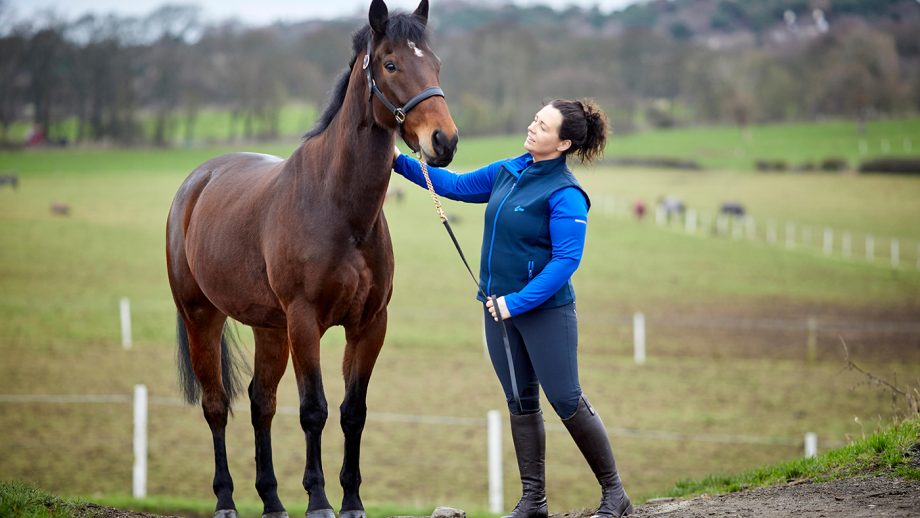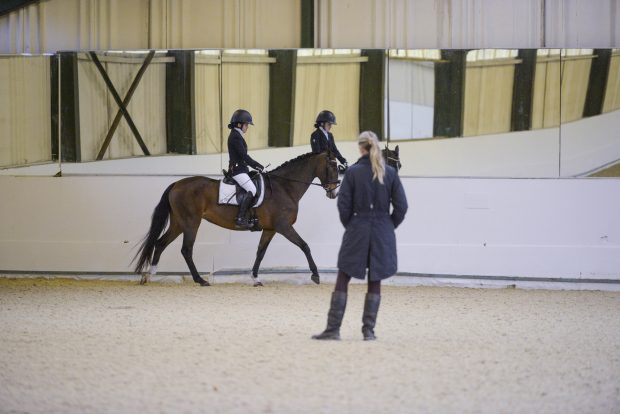Action Fraud has warned buyers to be on their guard after the release of shocking figures surrounding equine scams.
The national fraud and cyber crime reporting centre found that between 2014 and 2017, victims of fraudulent horse sales lost £68,717; an average of £3,436 per victim.
In light of these significant costs, Action Fraud has warned the equestrian community about a typical scam involving fake adverts of horses for sale.
Fraudsters place adverts on reputable websites to scam victims out of large amounts of money. They will even support their claims of each horse’s existence by supplying copies of documents, pictures and videos of the animal.
Although the adverts claim the horses are in the UK, victims are later told that they’re elsewhere in Europe and that the horses’ shipment can be arranged via a transport company.
On agreeing to buy the horse, victims are then contacted by someone who claims to be an agent of the transport company, who asks them to transfer over the purchase price and shipping costs of the animal.
In some cases, victims are contacted about problems with the delivery, such as the need for vaccinations, insurance or costs arising from veterinary fees and requests are made to cover these additional costs.
“With such large amounts of money involved, this type of fraud can have a significant and severe impact on the health and wellbeing of victims,” said head of Action Fraud, Pauline Smith.
“If you are looking to buy a horse online, it is vital that you thoroughly check the details of where you are making the purchase from and be sure to follow our advice (see bottom of article).”
A worrying trend
One victim lost £6,800 to this type of fraud.
The buyer was in contact with a “seller” who advised the total amount was for the horse, shipping, transportation and documents as the animal was coming from Germany.
The victim paid £6,800 and was later asked to pay another £1,700 as the seller said the horse was stuck in Belgium and needed particular documents. The victim realised at this point that it was suspicious and managed to gain the seller’s phone number which was traced to Cameroon. The victim then asked for the documents to be faxed through to her, but this was not done.
Another victim looking to buy a horse online lost £2,600.
The victim came into contact with the “seller” through a website and had been told initially that the horse was in Cambridge, only to later be informed that it was in Germany. The victim was told the horse would be delivered by a shipping company in Frankfurt and the seller said a credit card payment could be taken for shipping fees.
Continued below…

Buying a horse: Horse & Hound’s ultimate step-by-step guide

Warnings of online scam when buying horse trailers
An H&H reader who lost more than £4,000 trying to buy a trailer is warning riders to beware of fake

More H&H readers targeted by scams
Yet more horse owners advertising their animals for sale are targeted by conmen
The seller claimed the card was declined and instead took payment through a bank transfer. An additional amount was requested as an insurance and ferry boarding fee. At this point, the victim became suspicious, would not pay the additional amount and called Action Fraud.
How to stay safe when buying a horse online
Action Fraud has issued the following advice to buyers:
- Be wary of horses being offered for sale below their usual market value, particularly where the seller is looking for a quick sale due to a recent family bereavement, marital breakdown or other issues. If an offer seems too good to be true, it probably is.
- Be wary if an advert suggests the horse is in the UK but the seller later informs you it is in another country.
- Be cautious when buying a horse without seeing it, particularly when the only option of a vet check has been the seller’s vet.
- Never pay by bank transfer for goods which will be subject to delivery as the payment cannot be reversed.
- Be cautious of transactions if the seller or shipping agent asks you to make payment by sending money via a money transfer company as the payment cannot be reversed.
- Check the country code of the seller’s telephone number and make sure it relates to the country they claim to be in.
- If you have been a victim of equine fraud, report it to Action Fraud online or by calling 03001232040.
For all the latest news analysis, competition reports, interviews, features and much more, don’t miss Horse & Hound magazine, on sale every Thursday





